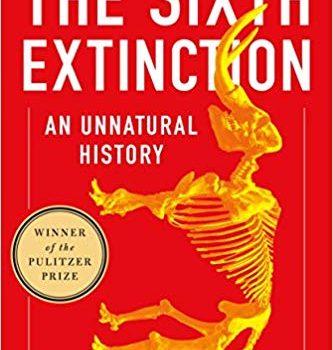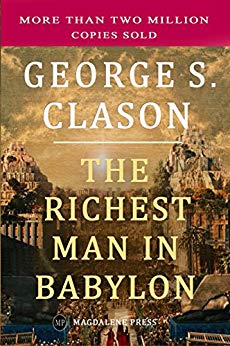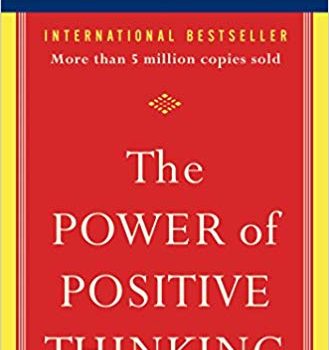A little girl growing up alone in the lush marshes of the North Carolina coast. A young woman who falls in love and experiences the anguish of a broken heart. A promise of marriage. A betrayal that leads to death. In _Where the Crawdads Sing_, Delia Owens reveals these moments along Kya Clark’s journey to survive after her family abandons her as a child. Owens’s prose is as lush as the environment she describes, making you feel you are with Kya every step of the way. As Kya deals with discrimination and torment by the local townspeople, she must also navigate matters of the heart and decide if opening her heart is worth the risk when all she’s known is loss.
#1 Book Summary: Unbroken, by Laura Hillenbrand
Louie Zamperini was one of the brightest prospects for the 1940 Olympics in track and field. But when WWII started, his life would take a much different path. The story of Louie’s struggles as a young loner, a rising star, a Pacific POW, and a man trying to reclaim his life after years of torment is as unbelievable as it is inspiring. Through Louie’s tale, the depths of the human soul and will to survive are examined. As Louie spirals out of control because of trauma and becomes obsessed with a plot to kill the man who tortured him, he learns that a man is not defined by his history, but rather by the manner in which he seeks a future. _Unbroken_ reaches into the heart of terror and shines a light on what it means to triumph.
The Tipping Point Book Summary, by Malcolm Gladwell
How do you spark a trend that spreads like wildfire, or turn a product into the latest must-have item? You create a social epidemic. _The Tipping Point_ explains how social epidemics — spreading ideas, messages, behaviors, and products — function like viruses, growing gradually until they reach a critical mass (the tipping point) and explode.
Three factors can be adjusted to tip an idea to a social epidemic: the messenger, the message itself, or the context of the message. Learn how Paul Revere’s midnight ride, _Sesame Street_, Airwalk skate shoes, and crime reduction in New York City began as ideas and tipped to become movements.
The Things They Carried Book Summary, by Tim O’Brien
_The Things They Carried_ by Tim O’Brien tells the stories of a small company of American soldiers serving in the Vietnam War. Through the narrative, the book blurs the line between autobiography and fiction, leaving the reader unsure as to what is fact and what is myth. In reading these stories, we explore the harrowing physical and psychological toll of warfare and the dehumanizing and brutalizing effects of combat on human beings. We also see the transformative power that narrative and storytelling have to help us make sense of our experiences and give meaning and clarity to even the most shocking, chaotic, and traumatizing events.
#1 Book Summary: The Tao of Pooh, by Benjamin Hoff
How can a loveable childhood character reveal the meaning of life? By living a simple life of doing nothing. In the _Tao of Pooh_, Benjamin Hoff reveals how the simple-minded character of Winnie the Pooh perfectly emulates the teachings of the ancient Chinese philosophy of Taoism. Taoist principles revolve around simply living as you are and following the natural power of the universe to find wisdom and happiness. While all the other creatures living in Pooh’s world get into all sorts of antics by overthinking or overacting, Pooh simply meanders as he is without question. The Way of Pooh is the Way of Taoism.
The Sixth Extinction Book Summary, by Elizabeth Kolbert

In _The Sixth Extinction_, journalist Elizbeth Kolbert argues that by drastically changing the shape of the earth and the composition of the atmosphere, **humans have set in motion a sixth mass extinction that may one day be our undoing**. The book revisits five previous mass extinction events spanning five hundred million years and compares them to the rapid, widespread extinctions underway today of a range of species including frogs, corals, birds, and rhinos.
These extinctions are a consequence of human-created global warming and ocean acidification, the destruction and fragmentation of forests, and our spread of invasive species around the world. What’s more, these actions will determine the course of life on the planet long after our species is gone.
The Richest Man in Baby lon Book Summary, by George S. Clason

_The Richest Man in Babylon_ by George S. Clason is a compilation of pamphlets offering financial advice that were distributed by banks and insurance companies in in the 1920s. The book presents timeless principles for managing your money in the form of “Seven Cures for a Lean Purse” (how to acquire wealth) and “Five Laws of Gold” (how to preserve and grow wealth).
The simple principles are illustrated by parables set more than 4,000 years ago in the wealthy city of Babylon. Clason’s message is that if you work hard, save, live within your means, and invest wisely, you can become wealthy.
The Power of Positive Thinking Book Summary, by Norman Vincent Peale

In _The Power of Positive Thinking_, Norman Vincent Peale says there is no problem or obstacle you can’t overcome with faith, positive thinking, and prayer. The book outlines the practical techniques of applied Christianity to help you take control of the events in your life rather than be directed by them. By applying these methods, you can enjoy better relationships, a greater sense of well-being, robust health and energy, and a stronger sense of purpose in the world. You’ll learn to believe in yourself, harness the power you need to reach your goals, and live a fulfilling life.
#1 Book Summary: The Power of Now, by Eckhart Tolle
_The Power of Now_ proposes that the only way to reach true peace and fulfillment is through being completely present in each moment you experience. There is a part of our mind, called the ego, that derails us by ruminating on the past, speculating about the future, clinging to our painful experiences, and insisting that we will be happy and fulfilled if we can just achieve this goal.
_The Power of Now_ reveals that inner peace and happiness can’t be found in anything external, but rather must be found within by being present. Learn tips and methods for quieting your thoughts and fears to find fulfillment through presence.
The Plant Paradox Book Summary, by Steven R. Gundry
From the low-carb, high-fat keto diet to whole-foods-based paleo diet, there are countless eating programs promising to help you lose weight and be healthier. The Plant Paradox Program (PPP) is an eating and lifestyle program based on the way foods and products affect your body and immune system; it involves eating lots of the _right_ plants, while avoiding others, in order to reach and maintain a healthy weight and live free of chronic and autoimmune diseases. The program is based on the premise that **small things can cause big problems and the key to your health is less about what you _add _to your diet and more about what you _remove_.**
In this summary, learn why whole grains and mouthwash are making you sick and fat, and why almost everything you think you know about healthy food is wrong.